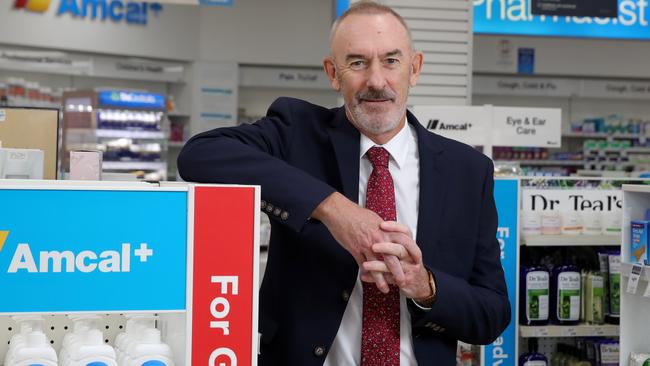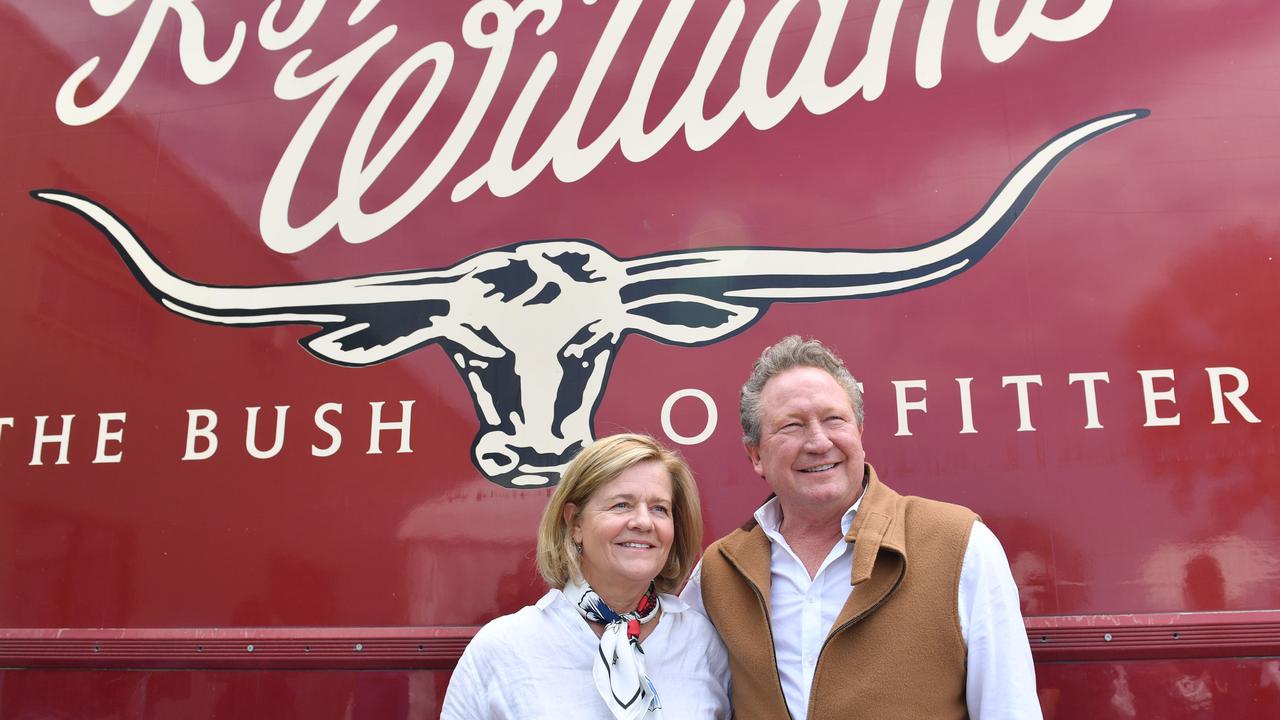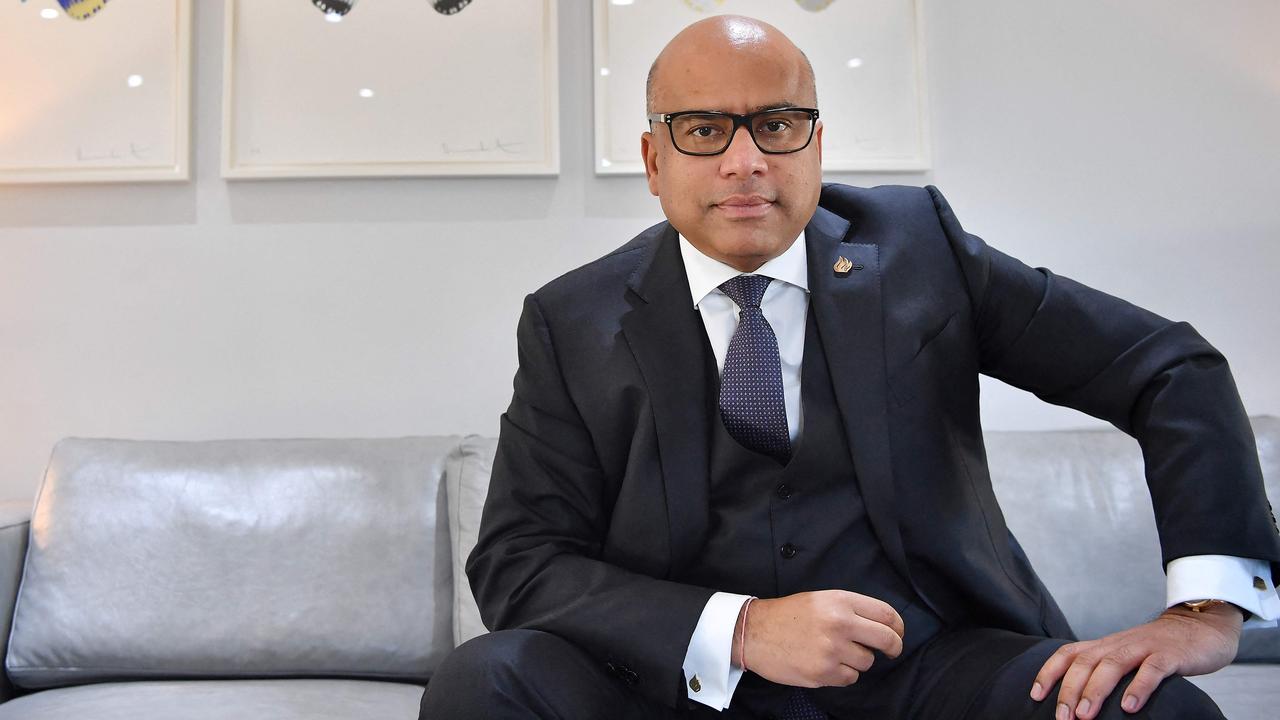New Sigma chair Ray Gunston focuses on post-virus world
Ray Gunston, the incoming chair of Sigma Healthcare, says the effects of the coronavirus will require a change of expectations.

Ray Gunston, the incoming chair of Australia’s biggest pharmaceutical wholesaler Sigma Healthcare, says the effects of the coronavirus outbreak will last beyond six months and require a change of community and business expectations to adjust to the post-pandemic world.
Mr Gunston — whose previous roles include chief financial officer at Tatts and interim chief executive of AFL club Essendon — takes over from Brian Jamieson, who has held Sigma’s chairmanship for more than a decade.
His appointment comes as pharmaceutical supply chains have been under pressure, first from the summer bushfires and then the COVID-19 pandemic.
The coronavirus has exposed vulnerabilities in how Australia sources essential goods, with overseas supply lines constricted from factory shutdowns and travel bans, fuelling calls to revive Australia’s once great and now anaemic manufacturing industry.
Scott Morrison says business, not government, should be at the centre of the recovery, and Mr Gunston says there are many things companies can do.
“The question is, why are we where we’re at?” Mr Gunston said, highlighting the high costs of manufacturing in Australia versus the low volumes to service the population. “There are a whole range of structural reasons. The challenge for all us and the government is that in the longer term we do have reliability but we also have affordable prices.”
To that end, he said companies must build in agility and ensure their operations were as efficient as possible. In Sigma’s case, the answer came in 2018, when it walked away from its exclusive pharmaceutical distribution contract with Chemist Warehouse and a third of its revenue.
As a result, Sigma’s profit dived 80 per cent to $2.52m in the six months to July 31 last year, and its share price went into a tailspin.
But the company maintained its course, with Mr Jamieson, Mr Gunston and other directors backing management led by chief executive Mark Hooper and invested $300m in upgrading its distribution centres.
“We have invested not so much in manufacturing but distribution. We are finding that there is a significant upside for us going forward, having invested in our new DC [distribution centre] frameworks and the work we have been doing since the Chemist Warehouse decision,” Mr Gunston said.
“We have created a lot more agility and resilience in our business and that’s what has to occur throughout the value chain.”
Of the COVID-19 pandemic, he said: “We have to acknowledge that this isn’t just a six-month issue. There will need to be a managing of expectations and managing of businesses, and managing personal wealth in a way that is what’s going to be a new world.”
Mr Jamieson agreed and said the investment in distribution had given Sigma a competitive advantage, being able to secure stock and distribute to pharmacies within a day in many cases, which was crucial during the bushfires and COVID-19 pandemic.
It has also led to Chemist Warehouse returning to Sigma and its sales increasing about 7 per cent, double the industry average.
This presented Mr Jamieson with a fitting farewell from the company, after he joined the board in 2003 before assuming the chairmanship in 2010.
When he took on the job, the company was burdened by debt and still manufacturing generic drugs, which were gobbling up earnings. Mr Jamieson oversaw the sale of Sigma’s manufacturing capability to South Africa’s Aspen Pharmacare for $900m, and returned it to a more sustainable and profitable footing that led to its share price rising to a high of $1.51 in October 2016.
But the decision to withdraw from manufacturing, with hindsight, will help fuel that change in mindset from boards and investors as they navigate the aftermath of the coronavirus.
“There is no doubt that we have to be more vigilant about what we take in the way of product from overseas and it’s important that we have some control over it,” Mr Jamieson said. “There will be a lot of thinking that will go into this that will say ‘we’re not going to put up with this in the future’.
“And I do think that locally done things will be somewhat attractive to people and government as opposed to globalisation.”
Mr Jamieson said he agreed with the call of Australia’s richest person, Anthony Pratt, in saying super funds should do more to support the manufacturing sector.



